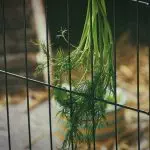Kava tea, a traditional South Pacific medicine, offers calming effects and potential benefits for stress, anxiety, depression symptoms, and energy without jitters or side effects common in pharmaceuticals or caffeinated drinks. Its compounds interact with brain serotonin receptors for relaxation and relief from mild to moderate anxiety, distinguishing it from kratom energy which stimulates the nervous system. Safe consumption involves 1-2 cups daily, dosage adjustments based on tolerance, and healthcare professional consultation; avoid if pregnant or nursing due to its mild sedative properties.
Discover the calming power of kava tea—an ancient herbal brew with a modern twist. This natural remedy has gained popularity for its potential to promote relaxation and anxiety relief without the Kratom energy jitters. Originating from the roots of the kava plant, it’s been used traditionally for centuries. Our article explores the science behind its relaxing effects, dosage guidelines, and safety precautions, offering a comprehensive look at kava tea as a viable natural option for managing stress and anxiety.
- Understanding Kava Tea: Origins and Benefits
- The Science Behind Kava's Relaxant Properties
- Exploring Kava Tea as a Natural Anxiety Reliever: Dosage and Safety Precautions
Understanding Kava Tea: Origins and Benefits
Kava tea, derived from the roots of a plant native to the South Pacific islands, has been a staple in traditional medicine for centuries. Historically, it’s known for its calming effects and role in promoting relaxation, making it a popular choice among those seeking anxiety relief. The herb has gained modern attention as an alternative remedy for stress and restlessness, often used as a natural alternative to pharmaceuticals.
Beyond its relaxing properties, kava tea offers various other potential benefits. Some studies suggest it may aid in reducing symptoms of depression and improving overall mood. It’s also known for its kratom energy-boosting capabilities, providing a gentle yet sustained energy increase without the jitters often associated with caffeinated drinks. This makes it a popular choice for individuals looking for a natural pick-me-up alternative.
The Science Behind Kava's Relaxant Properties
Kava tea, derived from the root of the Piper kava plant, has been a traditional remedy for stress and anxiety in many Pacific Island cultures for centuries. Its relaxing effects are attributed to several chemical compounds, primarily kaapana and dihydrokavain, which act on the brain’s serotonin receptors. These compounds interact with neurotransmitters, leading to a state of calmness without drowsiness.
Research has backed up these ancient claims, showing that kava can reduce anxiety and promote relaxation. Studies suggest that it may be as effective as certain prescription medications for mild to moderate anxiety disorders, offering an alternative option for those seeking natural remedies. Unlike kratom energy, which stimulates the central nervous system, kava encourages a sense of tranquility without causing jitteriness or increased heart rate.
Exploring Kava Tea as a Natural Anxiety Reliever: Dosage and Safety Precautions
Kava tea, derived from the root of the Kava plant, has gained popularity as a natural remedy for anxiety and stress relief. This herbal drink contains compounds that interact with certain brain receptors, promoting a sense of calmness and relaxation. Unlike some synthetic anxiety medications, kava offers a gentle yet effective approach to managing stress without the potential side effects.
When exploring kava tea as an anxiety reliever, it’s essential to understand the appropriate dosage and safety precautions. Typically, 1-2 cups of kava tea per day are recommended for most individuals. However, dosages may vary based on personal tolerance and desired effects. It’s crucial to start with a lower dose and gradually increase to avoid any adverse reactions. As with any herbal supplement, consulting a healthcare professional is advisable, especially if you have pre-existing health conditions or are taking other medications. Safety precautions include avoiding kava tea if pregnant or nursing, and being mindful of its mild sedative effects, which may impair coordination and judgment.
Kava tea, with its rich history and growing scientific backing, offers a natural path towards relaxation and anxiety relief. By understanding its origins, the science behind its effects, and following safe consumption guidelines, you can harness the power of this herbal brew to promote a calmer mind and improve overall well-being, without relying solely on synthetic solutions or facing the side effects often associated with prescription medications. While not a cure-all, kava tea—with its unique kratom energy—can be a valuable addition to your toolkit for navigating stress and anxiety.






